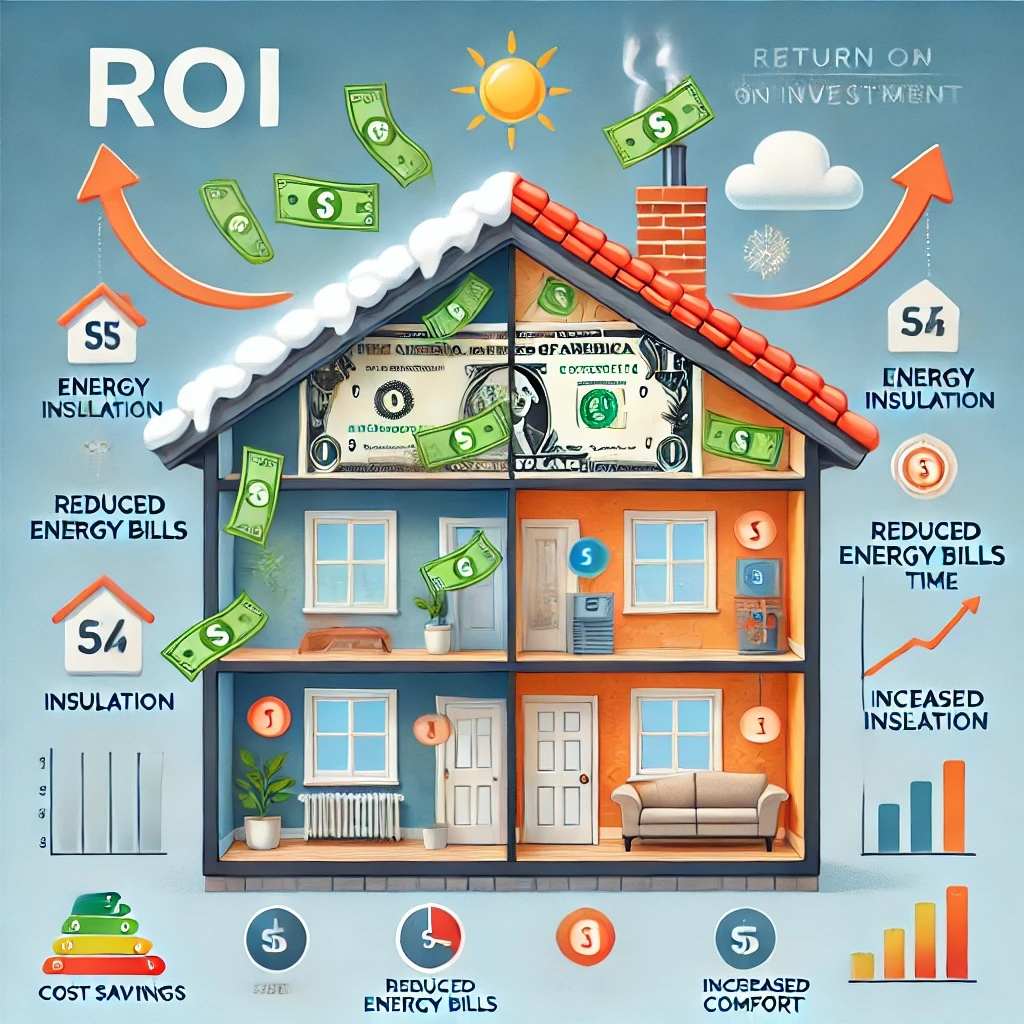Maximizing Your ROI: The Real Return on Insulation Investment
Introduction: The ROI That Pays You Back
Investing in home insulation is not just about enhancing comfort—it's a strategic financial decision that yields substantial energy savings. Understanding the Return on Insulation (ROI) empowers homeowners and businesses to make informed choices about energy efficiency and cost reductions.
What Is ROI in Insulation?
ROI in insulation measures how quickly your investment pays off through decreased energy bills and improved indoor comfort. Unlike other home improvements, insulation offers continuous, long-term savings.
Key Benefits of Insulation ROI:
- Lower Energy Bills: Proper insulation can save homeowners an average of 15% on heating and cooling costs, which translates to about 11% on total energy expenses.
energystar.gov - Enhanced Indoor Comfort: Maintaining consistent indoor temperatures reduces strain on HVAC systems, leading to fewer maintenance issues and extended system lifespan.
- Increased Property Value: Homes with effective insulation often have higher resale values due to improved energy efficiency ratings.
- Environmental Impact: Insulation currently in place in U.S. buildings reduces carbon dioxide emissions by 780 million tons each year, equivalent to the electricity use of over 90 million homes for a year. insulatekansascity.com
How to Calculate Your Insulation ROI
To determine the return on your insulation investment, consider the following steps:
Step 1: Identify Your Insulation Costs
Insulation costs vary based on material type, R-value, and installation complexity. Here's an estimate of common insulation types per square foot:
- Reflective Insulation (e.g., Prodex): $0.50 - $1.50
- Fiberglass Batts: $0.30 - $1.00
- Spray Foam: $1.50 - $5.00
Tip: Higher R-value insulation provides greater energy efficiency, leading to faster ROI.
Step 2: Calculate Your Annual Energy Savings
Analyze your utility bills before and after installing insulation. The U.S. Department of Energy estimates that proper insulation can reduce heating and cooling costs by 10%–50% annually.
Example:
- Monthly energy bill before insulation: $200
- Monthly energy bill after insulation: $140
- Monthly savings: $60
- Annual savings: $720
Step 3: Determine the Payback Period
Calculate how long it will take to recoup your investment:
Payback Period = Total Insulation Cost ÷ Annual Energy Savings
Example Calculation:
- Insulation Cost: $2,500
- Annual Savings: $720
- Payback Period: $2,500 ÷ $720 ≈ 3.47 years
After the payback period, all savings contribute directly to your financial gain.
Factors That Impact Insulation ROI
1. Climate & Location
Homes in extreme climates experience higher heating and cooling demands, leading to a faster return on insulation investments.
2. Insulation Type & R-Value
- Higher R-value = Greater thermal resistance = Higher savings
- Reflective insulation (like Prodex) provides superior performance in hot climates.
3. Energy Prices
Higher energy costs result in quicker returns on insulation investments.
4. Air Leaks & Home Efficiency
Combining insulation with air sealing prevents leaks around windows, doors, and ducts, maximizing ROI.
5. DIY vs. Professional Installation
- DIY insulation lowers upfront costs but requires proper installation techniques.
- Professional installation ensures efficiency but includes labor costs.
Case Studies Highlighting Insulation ROI
1. Industrial Application
A paper mill invested $95,000 in reusable insulation blankets for approximately 400 steam fittings. Since 2011, this investment has saved the mill $400,000, demonstrating a significant return on investment.
shannonglobalenergy.com
2. Residential Energy Savings
Homeowners can save an average of 15% on heating and cooling costs by air sealing their homes and adding insulation in attics, floors over crawl spaces, and accessible basement rim joists.
insulationinstitute.org
Final Thoughts: Is Insulation Worth the Investment?
Absolutely! Quality insulation is one of the smartest investments you can make in your home or business. By reducing energy costs, enhancing comfort, and increasing property value, insulation pays for itself in just a few years—and continues to save you money for decades.
Want to start saving now? Explore our premium insulation options today and maximize your ROI!







